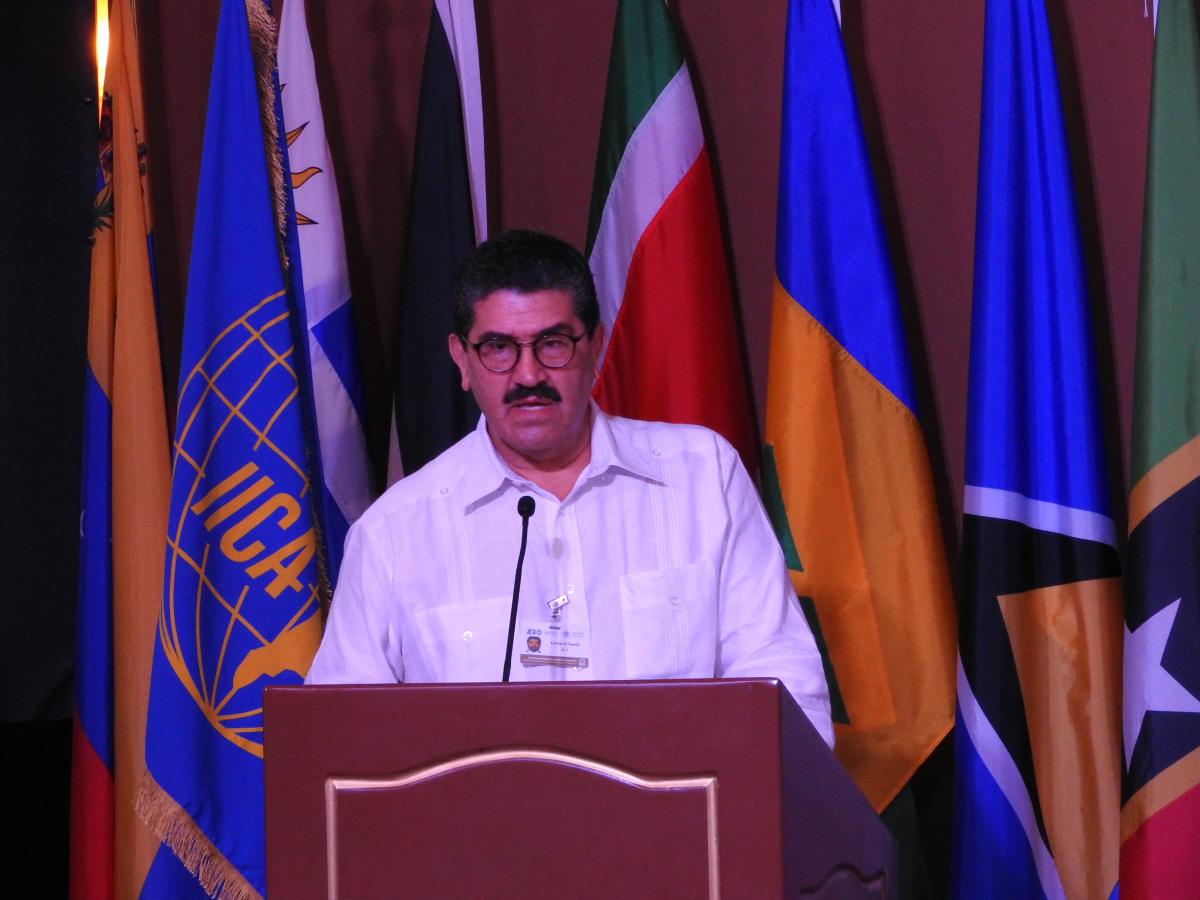The strengthening of IICA’s finances will allow the Institute to maintain the scale and quality of its cooperation in the hemisphere, for the benefit of the agricultural sector.

San Jose. At the Eighteenth Regular Meeting of the Inter-American Board of Agriculture (IABA), ministerial authorities made the historic decision to approve an increase in the annual budgetary contribution by the countries for IICA’s operation, with the objective of strengthening the Institute’s technical cooperation actions and improving its support for the agricultural sector of the Americas.
The Executive Committee of IICA recommended this increase in July, following an extensive analysis of the Institute’s financial structure and its future.
“We see this increase as an acknowledgement of our work that will result in greater and improved technical cooperation for the member states, but it also entails an ethical commitment on everyone’s part. It is also a sign of trust that obliges us to deliver more high-impact results that can be evaluated by our ministers,” stated Víctor M. Villalobos, Director General of IICA.
According to Carlos O’Farrill, Secretary of Corporate Services of the Institute, the budget increase will come into effect in 2016.
“This is an unprecedented milestone in the past 20 years. Overcoming this situation is an important achievement on the part of the current administration, since it will benefit the countries in terms of public policies, agricultural health, rural development, productivity and the management of natural resources, as well as other topics that the Member States consider to be a priority,” he stated.

A 6.57% increase in the current quota contributions was approved and, with some exceptions, the countries have offered over-quotas in varying amounts, which will provide critical supplementary financial support for institutional management.
“Currently, for every dollar that the countries in the Americas invest in IICA, we return an average of USD 24 in the form of technical cooperation actions. IICA has a multiplier effect that our ministers value greatly,” stated Villalobos.
IICA’s strategic partners consider the Institute to be the main ally of agriculture and rural development topics in the hemisphere. For that reason, a greater number of projects and economic resources are expected.
More information: carlos.ofarrill@iica.int











